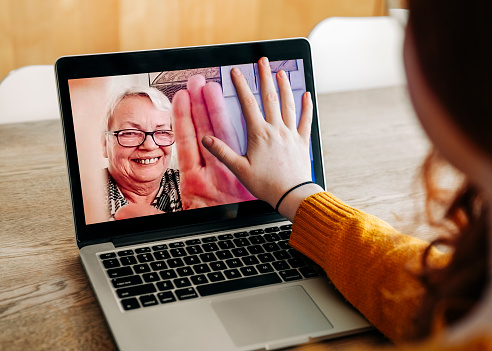Online Therapy: Pros and Cons of Online Therapy
As technology continues to evolve, so does the field of mental health. Online therapy, also known as e-therapy or teletherapy, has become increasingly popular, offering a convenient alternative to traditional face-to-face sessions. This article explores the *Pros and Cons of Online Therapy*, helping you understand whether it might be the right choice for you.
What is Online Therapy?
Online therapy involves receiving mental health support and counseling through digital platforms. These sessions can be conducted via video calls, phone calls, chat, or email. Licensed therapists provide the same quality of care as they would in person, but the mode of delivery is virtual.
Pros of Online Therapy
1. Accessibility and Convenience: One of the most significant *Pros of Online Therapy* is its accessibility. Individuals in remote or rural areas can easily access professional help without needing to travel long distances. Additionally, those with physical disabilities or mobility issues can receive therapy without the challenges associated with transportation.
2. Flexibility in Scheduling: Online therapy offers flexibility in scheduling, making it easier to fit sessions into a busy lifestyle. Whether you work unconventional hours or have family responsibilities, you can often find a time that suits your schedule.
3. Comfort and Privacy: Many people feel more comfortable discussing sensitive issues from the privacy of their own home. This can lead to more openness and honesty during sessions, potentially enhancing the therapeutic process.
4. Cost-Effectiveness: Online therapy can be more cost-effective than traditional therapy. Without the need for office space and other overhead costs, therapists may offer lower rates. Additionally, clients save on travel expenses and time.
5. Anonymity and Reduced Stigma: The anonymity provided by online therapy can be appealing, especially for those concerned about the stigma associated with seeking mental health help. This can encourage more people to seek the support they need.
Cons of Online Therapy
1. Limited Non-Verbal Communication: One of the *Cons of Online Therapy* is the potential loss of non-verbal communication. Body language, facial expressions, and other non-verbal cues play a crucial role in understanding and connecting with clients. While video calls help, they may not fully capture these nuances.
2. Technology Issues: The effectiveness of online therapy can be hindered by technical issues, such as poor internet connectivity, audio problems, or platform glitches. These disruptions can be frustrating and may interrupt the flow of a session.
3. Not Suitable for Severe Cases: Online therapy may not be the best option for individuals with severe mental health conditions, such as those requiring intensive treatment or crisis intervention. In such cases, in-person therapy or more specialized care might be necessary.
4. Privacy Concerns: While online therapy platforms strive to maintain confidentiality, there is always a risk of data breaches or privacy issues. It’s essential to choose a reputable platform that uses encryption and secure communication methods.
5. Insurance Coverage and Licensing Issues: Not all insurance plans cover online therapy, which can limit access for some individuals. Additionally, therapists may face licensing restrictions, as they may not be allowed to provide services to clients outside their licensed jurisdiction.
Who Can Benefit from Online Therapy?
Online therapy can be a great option for various individuals, including:
1. People in Remote Areas: Those living in remote or underserved areas with limited access to mental health services can benefit greatly from online therapy.
2. Busy Professionals and Parents: Individuals with hectic schedules, including working professionals and parents, can find the flexibility of online therapy particularly advantageous.
3. Those with Mobility Issues: People with physical disabilities or chronic illnesses that make travel difficult can access therapy conveniently from home.
4. Individuals Seeking Privacy: Those who value privacy or feel uncomfortable attending therapy in person may find online therapy to be a more comfortable option.
5. Expats and Travelers: Online therapy is an excellent solution for expatriates or frequent travelers who need consistent access to mental health support regardless of their location.
Choosing the Right Online Therapist
When considering online therapy, it’s crucial to choose a qualified and licensed therapist. Look for therapists who have experience and training in the areas you want to address. It’s also essential to ensure that the platform they use is secure and complies with privacy regulations.
Conclusion
The *Pros and Cons of Online Therapy* reveal that while it offers numerous benefits, it also has limitations. The decision to pursue online therapy should be based on individual needs, preferences, and the nature of the issues being addressed. For many, it provides a convenient, accessible, and effective way to receive mental health support.
For those interested in exploring online therapy options, it’s important to research and find a therapist who fits your needs. You can find an online therapist who meets your criteria and provides the support you need in a convenient and comfortable format.
**Sources:**
1. Psychology Today – The Pros and Cons of Online Therapy
2. American Psychological Association – Telehealth: The Future of Therapy
Must Read News
The Benefits of Couples Therapy
The Benefits of Couples Therapy: Strengthening Relationships Through Communication and Understanding Maintaining a healthy and [...]
5 Ways to Know If You or a Loved One Need Therapy
5 Ways to Know If You or a Loved One Need Therapy In today’s world, [...]
Talk Therapy: What It Is and How It Helps
Talk Therapy: What It Is and How It Helps Talk therapy, also known as psychotherapy, [...]
Group Therapy Near Me: The Power of Collective Healing
Group Therapy Near Me: The Power of Collective Healing Group therapy is an increasingly popular [...]
What is Cognitive Behavioral Therapy
What is Cognitive Behavioral Therapy? Cognitive Behavioral Therapy (CBT) is a widely recognized and evidence-based [...]
The Value of Teletherapy vs. Face-to-Face Therapy: Choosing the Right Fit for You
The Value of Teletherapy vs. Face-to-Face Therapy: Choosing the Right Fit for You The landscape [...]
Our Method
We use a combination of consumer reviews and overall scores from multiple online platforms such as Forbes, Trustpilot, Google, Indeed, Glassdoor, and others to form an overall composite score that shows how well a company not only treats its customers but how they treat their employees as well. Our multiplatform composite score prevents companies from gaming one review-generating platform or another for good scores. We believe this method provides the best overall social proofing.

